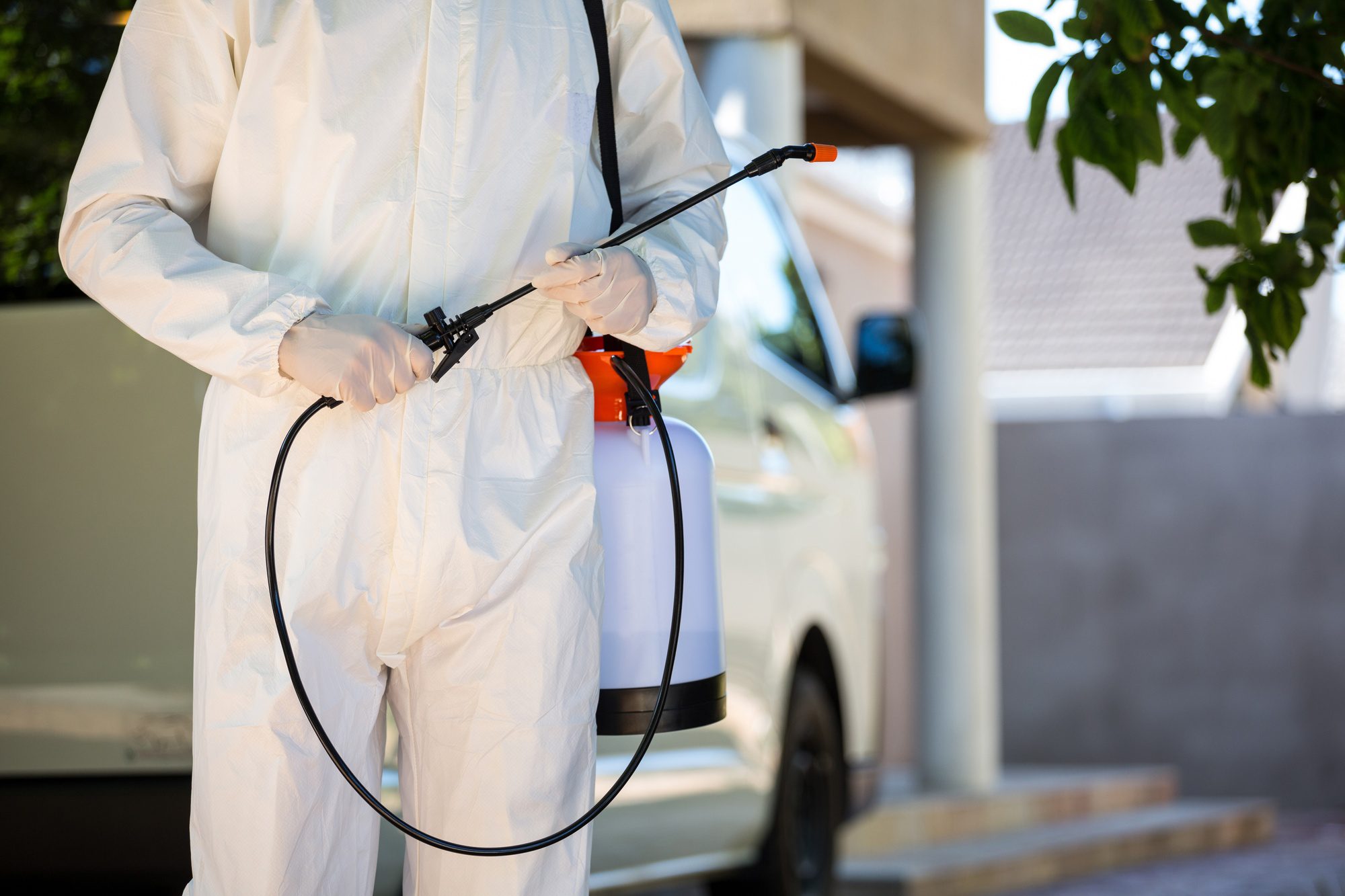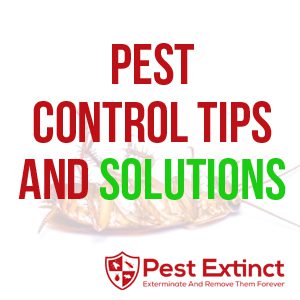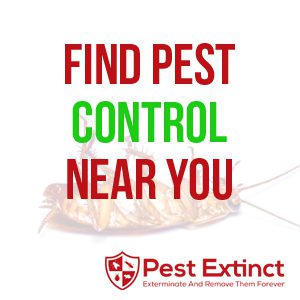
Choosing the Right Pest Control Service: Tips You Need for Business and Home
Pests are more than just an annoyance; they can cause significant damage to your property, pose health risks, and tarnish the reputation of your business or the comfort of your home. Whether you’re dealing with termites in your foundation, rodents in your attic, or ants in your kitchen, choosing the right pest control service is crucial to effectively addressing these issues. With numerous pest control companies available, each offering different services, making the right choice can be challenging. This blog will guide you through the essential tips you need to choose the right pest control service for both your business and home.
Understanding the Importance of Professional Pest Control
Before delving into how to choose the right pest control service, it’s important to understand why professional pest control is necessary. While DIY pest control methods might provide temporary relief, they often fail to address the root of the problem, leading to recurring infestations. Professional pest control services offer several advantages:
- Expertise and Knowledge: Pest control professionals are trained to identify various types of pests and understand their behaviors. This knowledge allows them to develop effective strategies to eliminate pests and prevent future infestations. They can also identify the signs of hidden infestations that might be missed by an untrained eye.
- Access to Effective Products: Professional pest control services have access to more potent and effective products than those available to the general public. These products are often stronger and more targeted, ensuring that pests are eliminated quickly and effectively. Additionally, professionals know how to apply these products safely, minimizing risks to people, pets, and the environment.
- Long-Term Solutions: Unlike DIY methods that might only address the symptoms, professional pest control services focus on long-term solutions. They not only eliminate existing pests but also implement measures to prevent future infestations. This comprehensive approach saves you time, money, and the frustration of dealing with recurring pest problems.
- Compliance with Regulations: In commercial settings, pest control is often regulated by health and safety standards. Professional pest control services are familiar with these regulations and can ensure that your business remains compliant, avoiding potential fines or closures.

Tips for Choosing the Right Pest Control Service
When it comes to choosing a pest control service, the decision should not be taken lightly. The effectiveness of pest control can have a significant impact on your property, health, and peace of mind. Here are the essential tips to help you select the right pest control service for your needs:
1. Assess Your Needs
The first step in choosing the right pest control service is to assess your specific needs. Different types of pests require different approaches, and the extent of the infestation can also influence the type of service you need.
Identify the Pest Problem
Start by identifying the type of pest problem you’re dealing with. Is it a one-time issue with a specific pest, or do you have recurring infestations? Knowing the type of pests (e.g., termites, rodents, insects) will help you choose a service that specializes in addressing those specific issues.
Determine the Severity of the Infestation
The severity of the infestation will also influence your choice. A minor ant problem might only require a one-time treatment, while a severe termite infestation may need a more comprehensive and ongoing approach. Understanding the extent of the problem will help you select a service that can effectively address it.
Consider the Location
Consider whether you need pest control for a residential or commercial property. Some pest control companies specialize in residential services, while others focus on commercial properties. The needs of a business might differ from those of a home, especially regarding compliance with health and safety regulations.

2. Research and Compare Providers
Once you have a clear understanding of your needs, it’s time to research and compare different pest control providers. This step is crucial to finding a reliable and effective service.
Check Credentials and Licensing
Ensure that the pest control service you choose is properly licensed and certified. In many regions, pest control companies are required to have specific licenses to operate. These credentials indicate that the company meets the necessary standards and regulations for safe and effective pest control.
Look for Experience and Expertise
Experience matters when it comes to pest control. Look for companies that have been in business for several years and have a proven track record of successfully handling pest problems similar to yours. Experienced providers are more likely to have the knowledge and expertise needed to address complex infestations.
Read Reviews and Ask for References
Customer reviews and testimonials can provide valuable insights into a company’s reputation and the quality of its services. Look for reviews on third-party websites, as well as on the company’s own site. Additionally, ask the company for references from past clients. Speaking directly with previous customers can give you a clearer picture of what to expect.
Compare Services and Pricing
Different pest control companies offer various services, so it’s important to compare what each provider includes in their packages. Some companies might offer one-time treatments, while others provide ongoing maintenance plans. Additionally, compare pricing to ensure you’re getting good value for your money. Keep in mind that the cheapest option isn’t always the best, especially if it compromises quality.
3. Evaluate Treatment Options
Pest control methods can vary significantly between providers, so it’s important to understand the treatment options available and choose one that aligns with your needs and values.
Chemical vs. Non-Chemical Treatments
Many pest control companies offer both chemical and non-chemical treatment options. Chemical treatments involve the use of pesticides and are often the most effective for severe infestations. However, they may raise concerns about safety, especially in homes with children or pets. Non-chemical treatments, such as traps, baits, or heat treatments, are typically safer but might take longer to be effective. Discuss the pros and cons of each method with your pest control provider to determine the best approach for your situation.
Environmental Impact
If environmental sustainability is important to you, look for pest control services that use eco-friendly or “green” products and methods. These options minimize harm to the environment while still effectively managing pests. Ask the provider about the products they use and whether they are certified by environmental organizations.
Safety Considerations
Safety is a critical factor when choosing a pest control service. Ensure that the company takes precautions to protect people, pets, and property during and after treatment. This might include providing detailed instructions on what to do before and after treatment, as well as ensuring that all products used are approved for safe use in homes or businesses.

4. Ask About Guarantees and Follow-Up Services
A reputable pest control company should stand by the quality of its work. Before making a decision, ask about any guarantees or warranties they offer.
Satisfaction Guarantees
Some pest control companies offer satisfaction guarantees, which means they will return to treat your property again if the pest problem persists after the initial treatment. This guarantee provides peace of mind and ensures that you’re not left dealing with a recurring issue.
Follow-Up Visits
Pest control isn’t always a one-time fix, especially for severe infestations. Ask about follow-up visits and ongoing maintenance plans. Regular inspections and treatments can prevent pests from returning and help maintain a pest-free environment. Ensure that the company offers flexible scheduling for follow-up visits that fit your needs.
5. Consider Customer Service and Communication
Effective communication and good customer service are essential when working with a pest control provider. You want a company that is responsive, informative, and easy to work with.
Responsiveness
When you contact a pest control company, pay attention to how quickly they respond to your inquiries. A responsive company indicates that they value your business and are committed to providing timely service. Quick response times are especially important if you’re dealing with an urgent pest issue.
Professionalism
Professionalism is key in all interactions with a pest control service. The company’s representatives should be courteous, knowledgeable, and respectful. They should take the time to answer your questions and explain their treatment plans clearly. If a company appears disorganized or dismissive, it may be a red flag.
Transparent Communication
Choose a pest control provider that communicates clearly and transparently about their services, pricing, and treatment methods. They should provide a detailed explanation of the process, what you can expect during treatment, and any preparations you need to make. Clear communication helps set the right expectations and ensures there are no surprises down the line.
6. Evaluate Contract Terms
Before signing a contract with a pest control company, carefully review the terms and conditions. This is especially important if you’re opting for an ongoing service plan.
Service Agreements
Ensure that the service agreement outlines the specific services provided, the frequency of treatments, and any follow-up visits. It should also detail the responsibilities of both the provider and the client, including any preparations required before treatment.
Cancellation Policy
Understand the cancellation policy before entering into a long-term agreement. Some contracts may have penalties for early termination, while others may allow you to cancel with minimal notice. Make sure the terms are flexible enough to meet your needs.
Payment Terms
Review the payment terms carefully. Are payments due upfront, or are they spread out over time? Are there any additional fees for follow-up visits or special treatments? Understanding the payment structure will help you budget for the service and avoid unexpected pest control service costs.

7. Consider Specialized Services
If you have a specific type of pest problem, you may need a pest control company that offers specialized services.
Termite Control
Termites require specialized treatment due to their ability to cause significant structural damage. If you’re dealing with termites, look for a company with expertise in termite control and prevention. They should offer services like termite inspections, baiting systems, and soil treatments to protect your property.
Rodent Control
Rodents can be challenging to manage and may require a different approach than insect pests. Companies that specialize in rodent control will have the right tools and knowledge to eliminate these pests and prevent them from returning.
Bed Bug Treatment
Bed bugs are notoriously difficult to eradicate, often requiring multiple treatments. A company with experience in bed bug control will know the best methods to eliminate them and prevent future infestations.
8. Prioritize Local Expertise
Pest problems can vary significantly depending on the region. A pest control company with local expertise will have a better understanding of the specific pests that are common in your area and the most effective ways to control them.
Knowledge of Local Pests
Local pest control companies are familiar with the pests that are prevalent in your area, as well as the best times of year for treatment. They can provide targeted solutions that address the unique challenges posed by local pests.
Community Reputation
A company that has been serving the local community for many years is likely to have a strong reputation for quality and reliability. Ask for recommendations from neighbors, friends, or colleagues who have used local pest control services.

9. Plan for Future Prevention
Once the immediate pest problem has been addressed, it’s important to plan for future prevention. Work with your pest control provider to develop a strategy for keeping pests at bay.
Regular Inspections
Schedule regular inspections with your pest control company to catch any potential issues early. Regular monitoring can help prevent infestations from taking hold and reduce the need for more intensive treatments.
Preventative Treatments
Discuss the possibility of preventative treatments, especially if you live in an area prone to specific pests. For example, regular termite treatments can protect your property from costly damage, while rodent-proofing can prevent rodents from entering your home or business.
Education and Tips
Ask your pest control provider for tips on how to reduce the risk of future infestations. This might include advice on proper sanitation, landscaping, and home maintenance practices that can make your property less attractive to pests.
Choosing the right pest control service is a critical decision that requires careful consideration of your specific needs, the provider’s expertise, and the long-term benefits of the service. By following the tips outlined in this guide, you can make an informed decision that ensures effective pest management for your home or business.

Leave a Reply